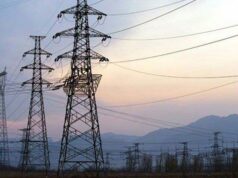THE Cabinet Cluster on Climate Change Adaptation, Mitigation, and Disaster Risk Reduction (CCAM-DRR) is seeking a budget of P152.4 billion for 2021 climate and risk resiliency program projects.
CCAM-DRR, led by the Department of Environment and Natural Resources (DENR), said the requested budget is 30% higher than the P117 billion allocated to the program this year.
According to DENR Undersecretary Analiza Rebuelta-Teh, the proposed funding will help build sustainable and resilient communities to help them rebound from the coronavirus disease 2019 (COVID-19) pandemic.
“We are still in the midst of a health crisis brought about by the COVID-19 pandemic. The country needs programs that will strengthen the resilience and adaptive capacities of its communities, especially in climate-vulnerable provinces and major urban centers,” Ms. Rebuelta-Teh said.
The DENR said the risk resiliency program aims to assist vulnerable communities, ensure ample supply of resources such as water, and improve the resiliency of critical infrastructure, among others.
For 2021, the program will prioritize 14 climate-vulnerable provinces that are affected by rising sea levels, extreme rainfall and heat, higher ocean temperature, and disrupted supply of natural resources.
The provinces are Masbate, Sorsogon, Negros Oriental, Western Samar, Eastern Samar, Sarangani, Surigao del Norte, Surigao del Sur, Dinagat Islands, Southern Leyte, Zamboanga del Norte, Bukidnon, North Cotabato, and Sultan Kudarat.
The program will also cover major urban areas such as Metro Manila, Metro Cebu, Metro Iloilo, and Metro Davao.
In July, Environment Secretary Roy A. Cimatu reiterated that climate change is still a priority for the national government as it deals with the COVID-19 pandemic.
Mr. Cimatu said climate change is just as much of a threat as COVID-19, except that it unfolds in slow motion and imperils future generations.
“The government will prioritize action and investment that will reduce the long-term health impacts and increase our resilience and adaptive capacity to both the coronavirus pandemic and climate change,” Mr. Cimatu said. — Revin Mikhael D. Ochave



